Thousands are set to be affected by the recent Indian student ban and restrictions by five Australian universities.
The crackdown was revealed a day after Australian Prime Minister Anthony Albanese arrives in India to boost trade and investment ties.
He was also there to “celebrate Australia’s educational ties and to announce a new agreement with Australian universities and colleges.”
The new would start “the most comprehensive and ambitious arrangement agreed to by India with any country,” he said.
The “mutual recognition of qualifications between Australia and India,” which would ease university travel to either country, was said to be key to this arrangement.
Reports, however, tell otherwise for Indian applicants to these five universities.
Some universities have stepped forward to deny the exposé as of the time of writing. Others have neither confirmed nor denied.
Here’s what we know so far about the Indian student ban by Australian universities:
![indian student ban]()
The Indian student ban by five Australian universities could affect thousands. Source: Trevor Collens/AFP
1. Some universities have placed restrictions on Indian applicants
These are the Australian universities:
- Victoria University
- University of Wollongong (UOW)
- Torrens University
- Edith Cowan University (ECU)
- Federation University Australia
- Western Sydney University
- agents working for Southern Cross University.
On Tuesday, The Age and Sydney Morning Herald revealed that the “Indian student ban” was set in place amidst a surge in applications and an accompanying rise in what Home Affairs described as fraudulent applications.
The University of Wollongong on Thursday denied this report.
“Like all Australian universities, UOW has rigorous entry criteria for all students,” the university said.
“UOW does not have any restrictions on student applications from India other than the standard entry criteria we apply to all international students and the requirements of the Australian Department of Home Affairs.
“In fact, rather than introducing restrictions, we have streamlined our application process for all international students, including Indian students, which will speed up turnaround times on their applications.”
But what makes an application “fraudulent” or “bogus”?
2. Why the Indian student ban?
An application is deemed fraudulent or bogus if the applicant does not intend to study at the university applied to.
Instead, the applicant plans to use their study visa as a means to legally stay in Australia to work.
Australia was on track to accept the biggest intake of Indian students since 2019’s highest tally of 75,000 students.
Its Home Affairs Department said that the bulk of these applications might be fraudulent and rejected 94% of them.
This was in comparison to the 1% of rejected applications from students in the UK, France, and US.
![indian student ban]()
Authorities have been forced to crack down and conduct investigations on the schemes taking place. Source: Tony Ashby/AFP
It’s not only the bogus applications that have contributed to this ban.
Universities across Australia have noticed that half or more than half of the students that were accepted had not shown up for classes.
Universities were reportedly either being ghosted, or their students have been poached by rival private colleges.
“It involves a minority of private colleges that are going after students both in the higher education sector and the quality private sector here,” says Pankaj Pathak, chairman of the peak body for private education providers in Western Australia.
Students are reportedly being lured by cheaper courses at vocational institutions that can lead to job opportunities and, eventually, permanent residency in Australia.
Students are compensated with cash rewards, iPads and tickets to events. These colleges reportedly use a recruiting system to help students make the switch to other institutions as well.
What’s worse is these poachers have close ties to the Indian community at large, meaning they visit temples, cultural activities and sporting events to entice more students.
Offshore agents, referring to agents outside Australia, have been accused of poaching Indian students as well — which Ravi Lochar Singh of Global Reach has denied.
Offshore agents have zero influence on students once they are in Australia, the managing director of one of India’s largest student recruitment agencies, he says.
“It is the onshore migration agents doubling as education agents who get into the act,” he says.
It is the students themselves that are gaming the system, says a university director of international operations who wanted to remain anonymous.
“A large number of students who are shifting providers have already decided to do that before they have left India,” she says.
The Western Sydney University said students that commenced their studies in 2022 have not remained enrolled, resulting in a significantly high attrition rate –students were mainly from Punjab, Haryana, and Gujarat.
![indian student ban]()
Students from certain states in India now face a complete ban or severe restrictions. Source: Torsten Blackwood/AFP
3. Which states are affected by the Indian student ban?
Restrictions and bans have been placed upon students coming from these states;
- Punjab
- Haryana
- Uttar Pradesh
- Rajasthan
- Gujarat
- Jammu
- Kashmir
- Uttarakhand
In March 2023, Victoria University decided to increase restrictions on applicants from eight Indian states, including the ones above.
![indian student ban]()
Indian students abroad have faced numerous struggles in getting visas and legal papers. Source: Tauseff Mustafa/AFP
4. Will the Indian student ban affect genuine applicants?
SBS Punjabi spoke to several Australian universities which raised concerns that genuine applicants could be impacted by this ban, deterring them completely from studying in Australia.
Torrens University is reportedly currently paying extra attention to applications from Gujarat, Haryana, and Punjab.
A university spokesperson from Torrens said only very strong, high-quality application with an endorsement by its agent in India will be favoured.
The Herald reported that Victoria’s University regional recruitment manager Alex Hanlon has written to education agents notifying them of these changes.
This was “an effort to strengthen the profile of students from areas where we have seen increased visa risks,” according to Hanlon.
Another university spokesperson said these restrictions will include “assessing gaps” in an applicant’s academic history.
This will determine if they are suitably qualified, prepared to study in Australia and can support themselves adequately.
The University of Wollongong is looking closely at students applying from the Indian subcontinent and some other countries through a “genuine temporary entrant” test.
Students are advised to contact the universities or keep a lookout for announcements on the Home Affairs website if they need further updates.
![indian student ban]()
Studying in countries like Australia, UK, and Canada has been a lifelong dream for many Indians. Source: Daniel Slim/AFP
5. Are there Indian student bans in other countries?
While there have not been outright bans from other nations, the history of Indian students studying abroad has been rife with frustrations, restrictions and scandals.
In March 2023, the Canadian Border Security Agency (CBSA) informed 150 Indian students that they needed to leave the country due to forged college admission letters.
These students used immigration agencies to get in – the authorities say have been shut for seven months.
This was only detected when these students started applying for permanent residency after graduation.
Students told to leave cannot return for five years.
According to a news report, the CBSA said it uncovered a scheme where “unsubsidised private college programmes were leading foreign students to a post-graduation work permit”.
This was being done with the sole purpose of acquiring permanent residency.
In 2019, 129 Indian students were arrested for enrolling in a fake university, sparking huge questions about how these students ended up at an institution they knew nothing about.
The University of Farmington in Michigan was set up in 2015 to catch foreigners who travelled to US on student visas and wanted to continue staying on.
Employees here were undercover agents for the Immigration and Customs Enforcement agency (ICE).
Indian authorities hit back in indignation, but prosecutors have claimed those enrolling knew the university was fake.
![]()
The Indian student ban reportedly arose amidst a surge of bogus applications to five universities. These applicants intend to work, instead of study in Australia. Source: Steven Saphore/AFP
6. What’s the latest from the Australian government?
“Australian universities have the authority to make their own decisions on recruitment or admission, which may affect their intake from certain regions,” said a spokesperson from the Australian High Commission.
“The Australian High Commission is not aware of any institutions that currently restrict access for students from these regions.”
“The Australian government does not place bans on applicants from specific regions to apply to study in Australia — nor does the Australian government have the authority to advise or instruct institutions such as universities to ban applications from certain regions.”
On May 22, 2023, Prime Minister Narendra Modi arrived in Australia for a bilateral meeting to sign a new migration deal with the Australian government.
The deal will look at promoting the exchange of students, graduates, researchers, and business people.
The move came after rejection rates for Indian students hit their highest level in ten years, with one in four applications being labelled as “fraudulent” or “non-genuine”.
The newest ban will last for at least two months, as universities consider other measures to address this issue.

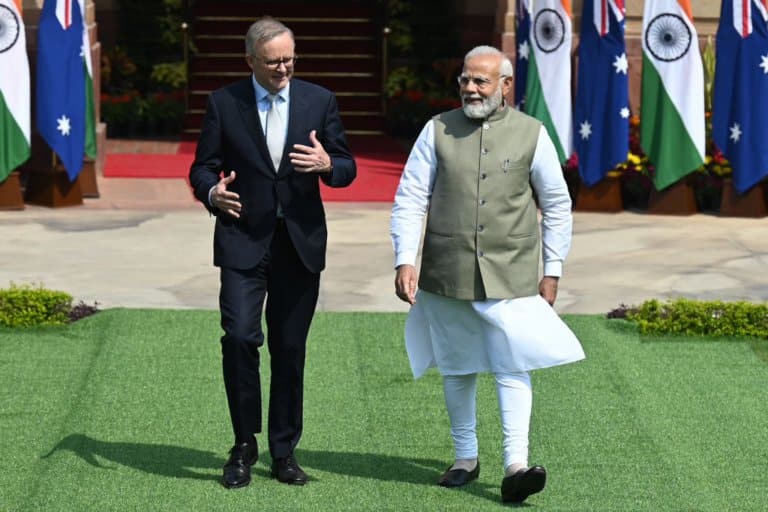



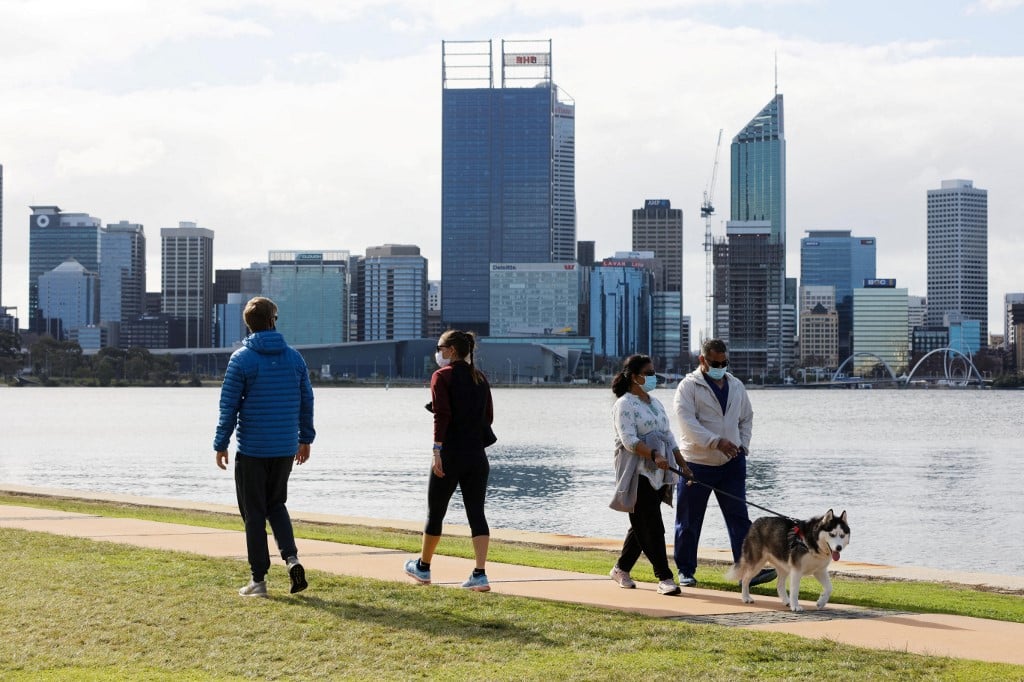
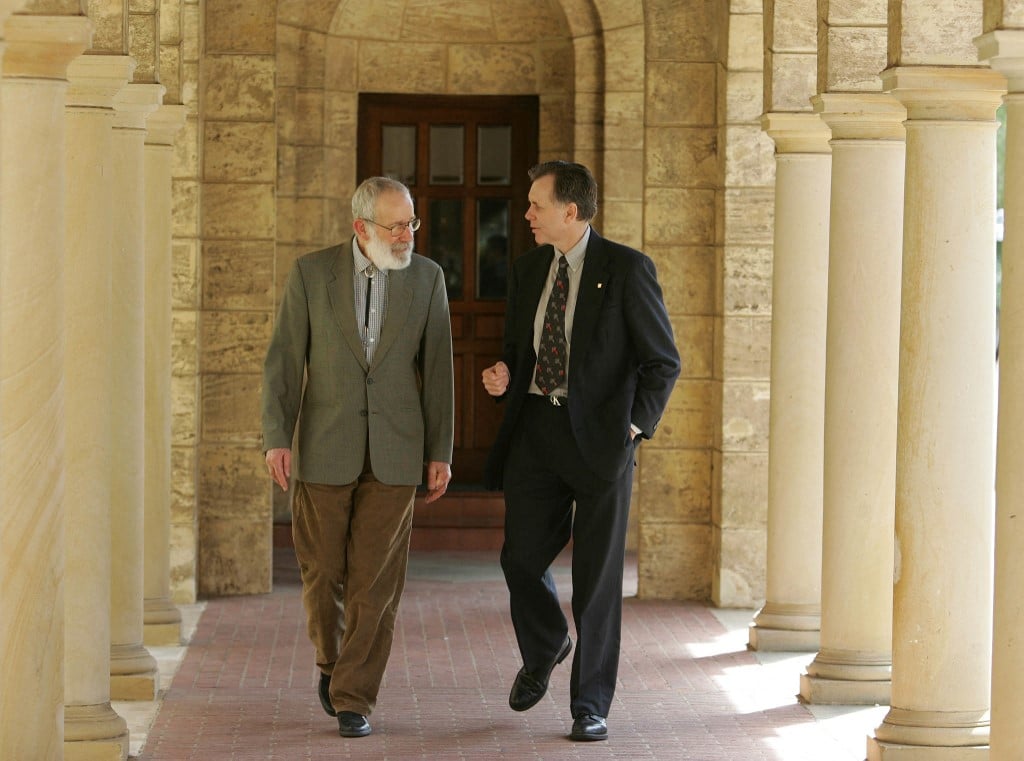
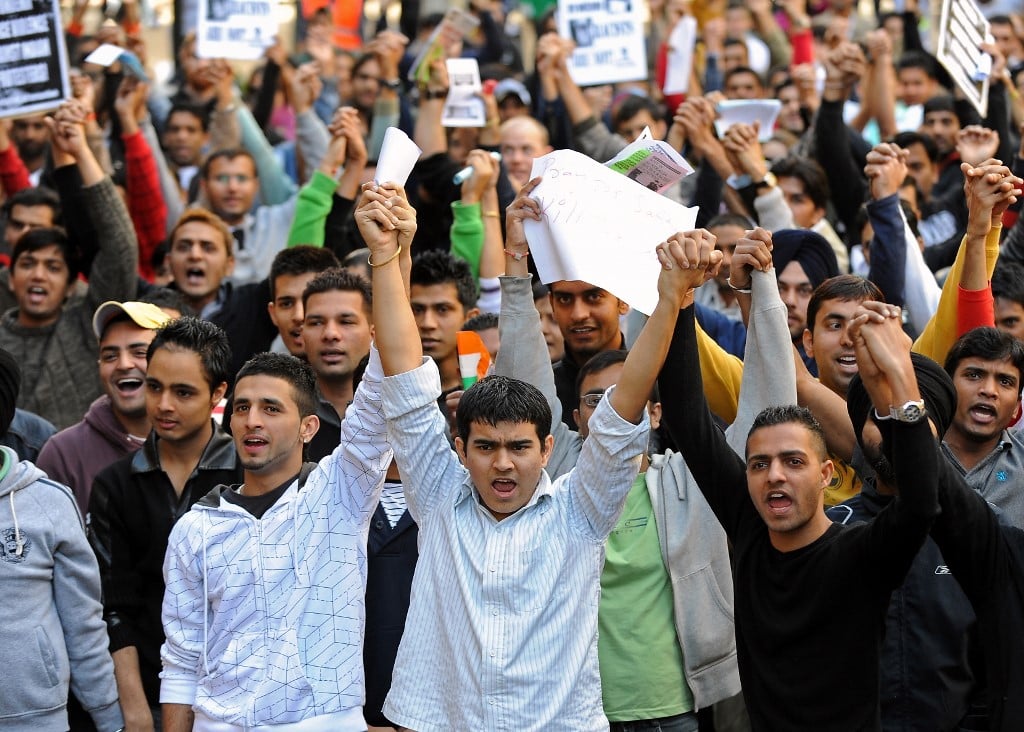
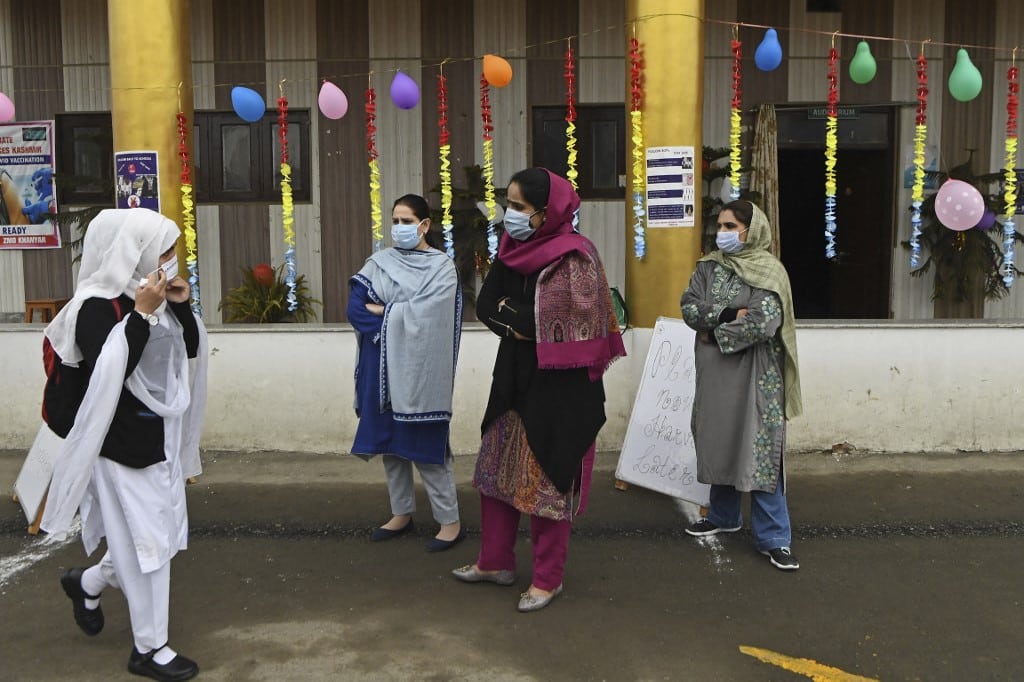
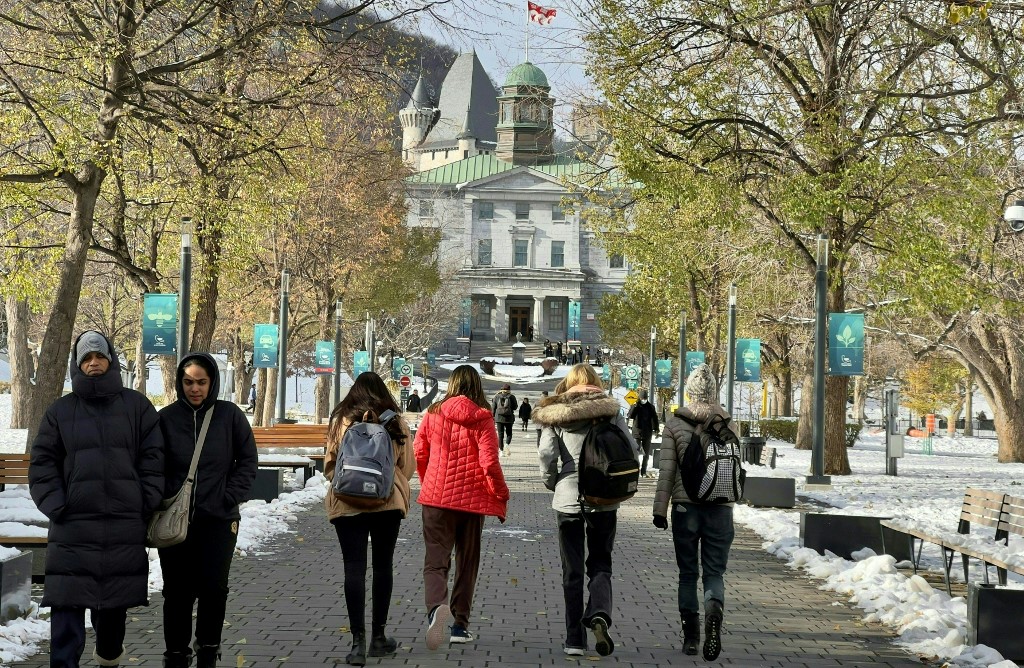





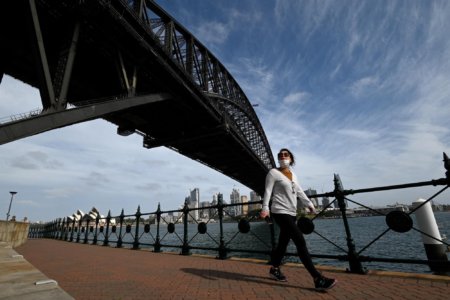
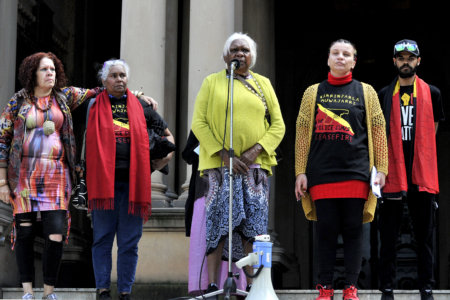

On Thursday, the High Commission of Australia said the Australian government does not discriminate against students of any region willing to pursue courses in academic institutions in the country.